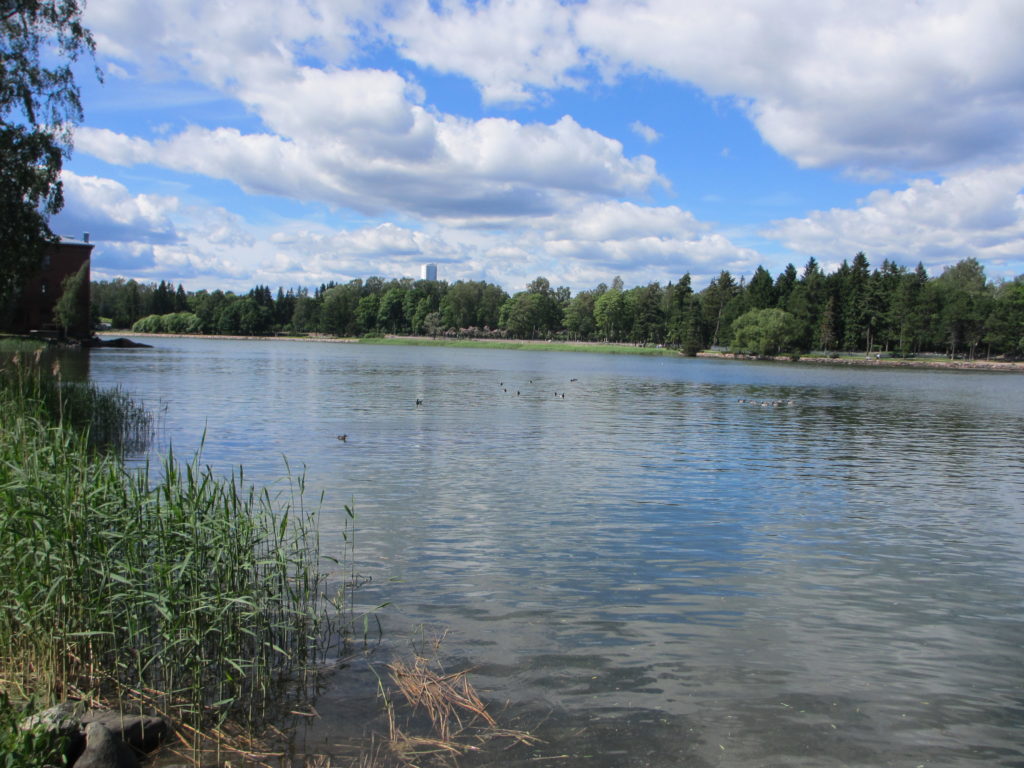WILPF, Suomen osasto allekirjoitti yhdessä useiden rauhanjärjestöjen kanssa oheisen julkilausuman:
CALL FOR THE BALTIC SEA
A SEA OF PEACE
Peace amongst people and protection for with the environment!
The Baltic Sea, our vulnerable inland sea, is one of the most trafficked, fragile and polluted seas in the world. On top of numerous environmental problems, rapidly increasing military threats are present in the Baltic Sea.
In addition to the increasing number of permanent troops in the Baltic Sea Region, the number of war exercises has increased, as well as the number of participants and participating countries has also increased. The nature of the exercises has also changed. Before, mainly crisis management was exercised. Nowadays also heavily armed and well equipped troop clashes are simulated, as well as nuclear warfare. Furthermore, the number of airspace violations and dangerous close by flights escalated in the summer of 2017.
Military exercises that include thousands and even tens of thousands of participants, and that are arranged several times a year by both western countries and Russia, dramatically add to the tensions between the western countries and Russia and contribute to the environmental pollution in the area. The exercises are a threat to world peace and a waste of valuable resources which should be used to tackle existing and future environmental challenges.
Extensive exercises like the ones that took place in 2017; Arctic Challenge, Northern Coast, Aurora and Zapad, may also lead to situations where mistakes happen. Such mistakes can have disastrous consequences.
An additional threat is the modernization of nuclear weapons that according to many war analysts and peace researchers lowers the threshold for their use. On top of the nuclear warheads of Great Britain and France, the U.S. has nuclear warheads positioned in Europe. Russia has nuclear warheads on the Russian mainland and most likely nuclear capable missiles in Kaliningrad.
It must also be taken into consideration that at the coasts of the Baltic Sea there are several nuclear power plants and other nuclear industry complexes posing huge danger in situations of great military stress like big war exercises or situations of conflict or war.
Finally the Baltic Sea is also threatened by heritage from previous wars, amongst others thousands of tons of explosives and chemical weapons that were dumped during World War I, as well as bombs, mines and other war material, estimated to several hundred thousand tons that were dumped after World War II.
We – who have signed this call:
- Call upon all governments in every country around the Baltic Sea to use their financial means to save the Baltic Sea instead of financing armament and other environmentally polluting activities!
- Intend to create debate about the military threats in the Baltic Sea area. We want to engage politicians, peace institutes, peace researchers, artists, well known personalities, non-governmental organizations and socially engaged citizens in the whole Baltic Sea area to take part in our project to make the Baltic Sea a SEA OF PEACE – peace amongst people and protection for the environment!
Susanne Gerstenberg, Women for Peace, Sweden, susanne.gerstenberg(at)telia.com
Kati Juva, Physicians for Social Responsibility, Finland, katijuva(at)kaapeli.fi
Ulla Klötzer, Women Against Nuclear Power – Finland, ullaklotzer(at)yahoo.com
Kirsti Kolthoff, Women´s International League for Peace and Freedom, Uppsala Branch, Sweden, uppsala(at)ikff.se
Arja Laine, Women´s International League for Peace and Freedom, Finnish section, wilpf(at)wilpf.fi
Lea Launokari, Women for Peace, Finland, lea.launokari(at)nettilinja.fi
Ewa Larsson, Green Women, Sweden, info(at)gronakvinnor.se
Jan Strömdahl, The Peoples’ Movement Against Nuclear Power And Weapons, Sweden, jfstromdahl(at)gmail.co
Riitta Wahlström, Technology for Life, Finland, riitta.wahlstrom(at)gmail.com
Gertrud Åström, Women’s Baltic Peacebuilding Initiative, Sweden, gertrud(at)helahut.se

